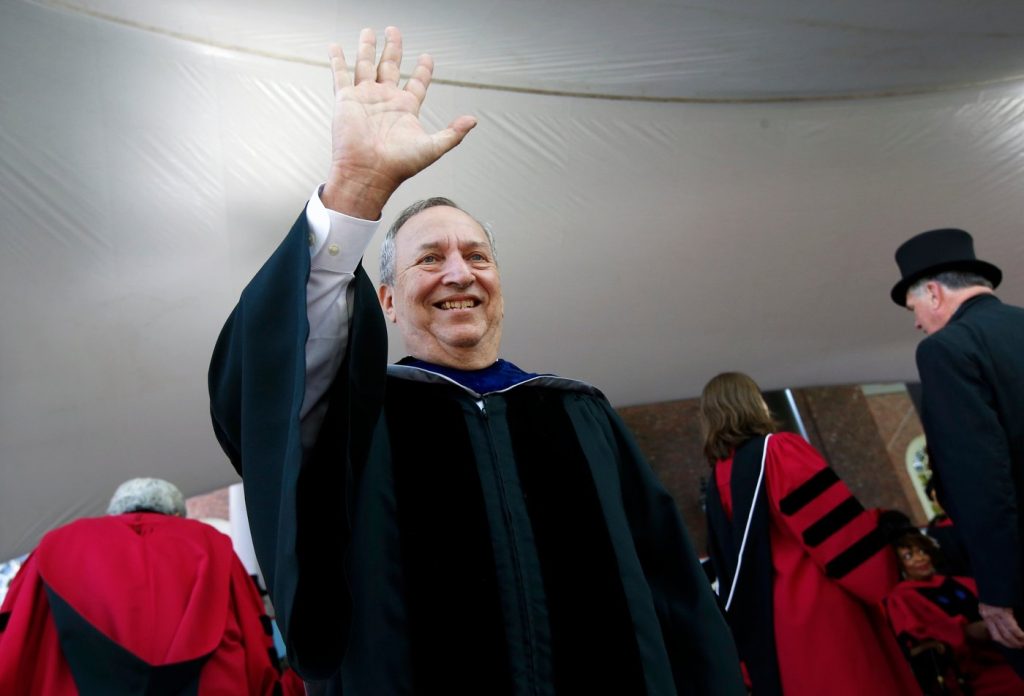WASHINGTON (AP) - Larry Summers, a prominent economist once referred to as a member of the "Committee to Save the World," is experiencing a significant downturn in his public life following his ties to Jeffrey Epstein. Recently released emails revealed that Summers maintained a friendly relationship with Epstein long after the latter's 2008 guilty plea for soliciting prostitution from an underage girl. This association has led Summers to take a leave from his teaching role at Harvard University, where he previously served as president.
The emails, which became public last week, showed that Summers was part of a network of Epstein's friends who continued to communicate with him even after he faced legal repercussions. For instance, a 2019 email from Summers mentioned an interaction with a woman, revealing casual correspondence with Epstein. In light of the revelations, Summers expressed "great regrets" about his connection to Epstein, labeling it as a "major error in judgment." Epstein, who committed suicide in 2019 while in custody, had faced serious charges related to the sexual abuse and trafficking of underage girls.
In the wake of the email release, former President Donald Trump requested the Justice Department and FBI to investigate Summers and other notable Democrats, including former President Bill Clinton, based on their associations with Epstein. U.S. Attorney General Pam Bondi later announced that a federal prosecutor has been assigned to lead the probe, indicating the serious implications of these ties.
Summers' resignation from the board of OpenAI and from other organizations, such as the Center for American Progress and the Budget Lab at Yale, is indicative of the fallout from the email revelations. Once a towering figure in economic policy, Summers has increasingly retreated from the public eye, marking a stark contrast to his earlier status as a driving force during the Clinton administration.
Summers gained prominence in the economic sector before Bill Clinton's presidency, having risen quickly through academia, including becoming one of the youngest tenured professors at Harvard. His public profile soared during his tenure as deputy Treasury Secretary, where he played a critical role in managing the Asian financial crisis. This earned him a spot on the cover of Time magazine alongside then-Treasury Secretary Robert Rubin and Federal Reserve Chair Alan Greenspan, coining them the "Committee to Save the World."
As Clinton’s final Treasury Secretary, Summers was a supporter of the deregulatory policies embraced by both parties, which ultimately led to weakened financial regulations. This stance would later come back to haunt him as critics argued that the deregulation contributed to the financial crisis that struck in 2008, with Summers under scrutiny for his previous decisions.
After a brief return to Harvard as president in 2001, Summers faced controversy over a speech that suggested women were less represented in science and engineering due to "intrinsic aptitude," a view widely criticized as sexist. His presidency at Harvard ended in 2006, following faculty conflicts and backlash over his comments regarding women's roles in academia.
In 2009, amidst the global financial crisis, President Barack Obama appointed Summers as director of the National Economic Council. However, Summers' past actions, particularly his advocacy for deregulation, led to skepticism from many Democrats, especially those aligned with the progressive wing of the party. These individuals blamed him for contributing to the financial collapse, prompting Obama to consider other candidates for the role of Federal Reserve chair, eventually selecting Janet Yellen instead.
In summary, Larry Summers, once a powerful figure in American economic policy, is now in a precarious position due to his past affiliations and the recent email scandal surrounding Jeffrey Epstein. His decision to step back from teaching at Harvard and his board positions marks a significant shift for someone who was once a cornerstone of economic leadership in the United States.











